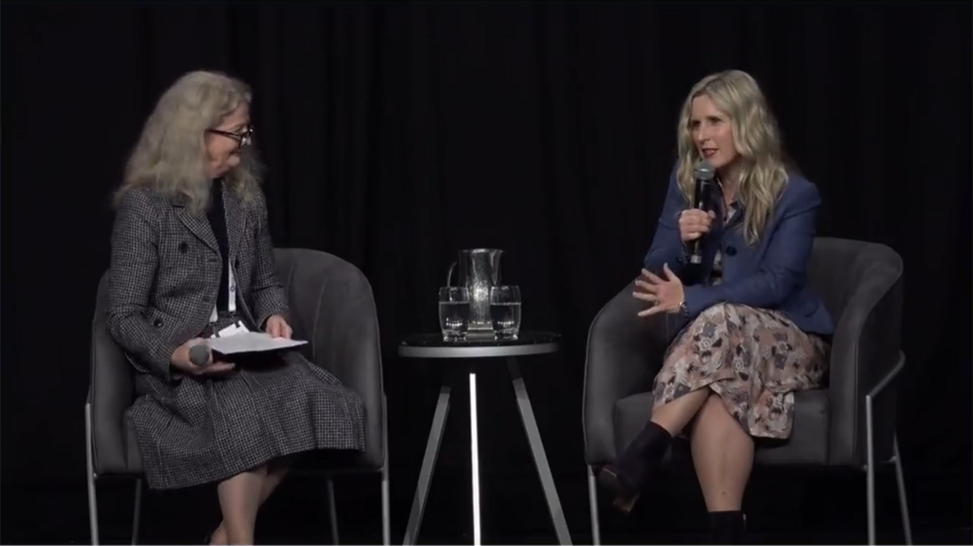AMP spending goodwill it doesn’t have with BOLR pushback
When disgraced former AMP Australia head Alex Wade was fired in mid-2020, and the man who oversaw his tenure, Francesco De Ferrari, left 6 months later, it seemed like the AMP group had reached its nadir. Battered by malfeasance uncovered at the Hayne Royal Commission, beset by scandal and with a stock price threatening to dip under $1 for the first time (which it soon did), the once mighty wealth management giant looked to have bottomed out.
But its new leadership spine promised better things. Ex-Sunsuper CEO Scott Hartley was brought in to replace Wade in late 2020 (just before Ferrari hit the road) and respected ex-Wealth Market chief executive Matt Lawler came on board to head up its advice arm in May, 2021.
The real coup, however, was hiring ex-ANZ wealth leader Alexis George (pictured) as CEO in August, 2021. Experienced and capable, George became the face of AMP’s new era, calling the new gig “her last executive job”.
For 18 months or so, AMP steadily rebuilt its wealth management reputation through careful messaging, astute restructuring of its bloated network, a willingness to admit that it had let clients down and a promise to learn from its mistakes.
George and Lawler proved savvy, leaning into AMP’s unmatched history in the Australian advice market and embracing the industry’s broader efforts at reform.
Through it all, however, AMP corporate was reluctant to deliver a full mea culpa to its advice network, and its redemptive arc was weighed down by its refusal to honour the long-standing buyer-of-last-resort (BOLR) agreements it held with advisers.
In 2019 AMP had sought to change the terms of these policies so that it could reduce the buy-out multiples of practices from 4.0 x to 2.5 x due to “changed market conditions” that saw the value of these practices plummet.
AMP was right – 2.5 x was the going rate for client books in the immediate aftermath of the royal commission. Yet the decision to cut BOLR multiples was a poor one. Not honouring BOLR deals was tantamount to welching on a bet. More importantly, AMP had plenty of money but was woefully short on goodwill.
While AMP’s revamped leadership spine (minus Hartley, culled earlier this year) largely stabilised the group, the ensuing class action instigated by distraught advisers has been a persistent anchor on any attempts to regenerate its advice division. Reneging on the BOLR deals was seen by many as a barberous act, which – fairly or not – reinforces to many the heartless transgressions AMP committed in the leadup to the royal commission.
The courts July ruling in favour of advisers in the BOLR case was a perfect moment for AMP to put the past in the rear view mirror and continue its recovery. The group reportedly put $50 million aside to cover the potential BOLR outlay, less than one fifth of its $261 million 2023 H1 net profit.
(Worth noting is that with 48 per cent inflows for its flagship North platform over the period, the path forward for AMP’s advice division looked promising. There was progress to protect.)
Accepting the court’s ruling would have reaffirmed AMP’s commitment to support not only advisers, but any group it harms in the course of making money for its shareholders. It would have signaled that it learnt from its mistakes, and was genuine in its desire to move forward and partner with advisers.
Instead, the group announced on Wednesday it would appeal the decision and enter mediation.
Lawler, ever the straight shooter, didn’t miss the point in what was the only statement that accompanied AMP’s press release.
“While we believe we have grounds on which to appeal,” he said, “we also recognise the ongoing impact the proceedings are having on practices, with whom we’ve worked hard to rebuild strong and trusted relationships.”
Those relationships, and AMP’s relationship with the general public, depend on a modicum of goodwill that Lawler and George had only just, by infinitesimal degrees, begun to win back.
AMP might successfully clamour for a discount on the BOLR bill, but it’s hard to see that discount being worth spending the last remaining loose change from its goodwill purse.











